Sri Lanka: Rebuilding lives and livelihoods, leaving a long conflict behind
Date:
Story courtesy of
Ayesha Rathnayake/Chrysalis
Illustrations for UN Women Sri Lanka by
Dinuk Senapatiratne
The 30-year civil conflict in Sri Lanka ended in 2009 but families in the north and east, many of whom had been displaced multiple times, have yet to fully resettle. And the COVID-19 pandemic worsened their difficulties.
Over a quarter of households in Sri Lanka are headed by women. And more than half of those women are widows. Many of them lost their husbands in the conflict.
Support for Durable Resettlement is a 2020-2022 project jointly implemented by UN Women, International Organization for Migration, United Nations Development Programme, the Office of the United Nations High Commissioner for Refugees, and United Nations Children’s Fund. United Nations Multi-Partner Trust Fund supports the project. Through the project, UN Women aims to strengthen the socioeconomic situations of women in newly resettled areas. UN Women has supported 100 women entrepreneurs who had been displaced and returned to Kilinochchi and Mullaitivu in Northern Province. This included trainings on business and finance as well as in-kind assistance awarded through a competition in which a panel of government officials and experts selected the most feasible business plans the trainees developed. The project also provided mentorship and peer support and access to marketplaces, and facilitated trading agreements among enterprises. UN Women’s project implementing partner Chrysalis, a local social enterprise that helps women and youths, did the trainings.
Here are the stories of four women who overcame their experiences of the conflict and used the training to create new security for themselves and their families.
Saratha’s story: Making snacks, eyeing a factory
Velupillai Saratha had to leave school after grade five to help her father grow rice because he could not afford to hire workers. And she cannot remember how many times she was displaced by the civil conflict.
Saratha lived in Kokilai, a town in northeast Sri Lanka. When fighting erupted in 1984, she and her family fled 35 kilometres away. They returned to Kokilai six years later. In 2007, the family fled to another town. They did not stay long – the increasing shelling drove them to seek refuge at a relative’s house. The family stayed there only 2-3 months. When the fighting grew especially intense, they once again fled, travelling to different villages and staying in temporary huts and in paddy fields.
They were then taken to a refugee camp in Vavuniya, a city in Northern Province. Her elderly parents could not walk by themselves and relatives suggested leaving them behind. But the two sisters carried their parents on their backs to the camp.
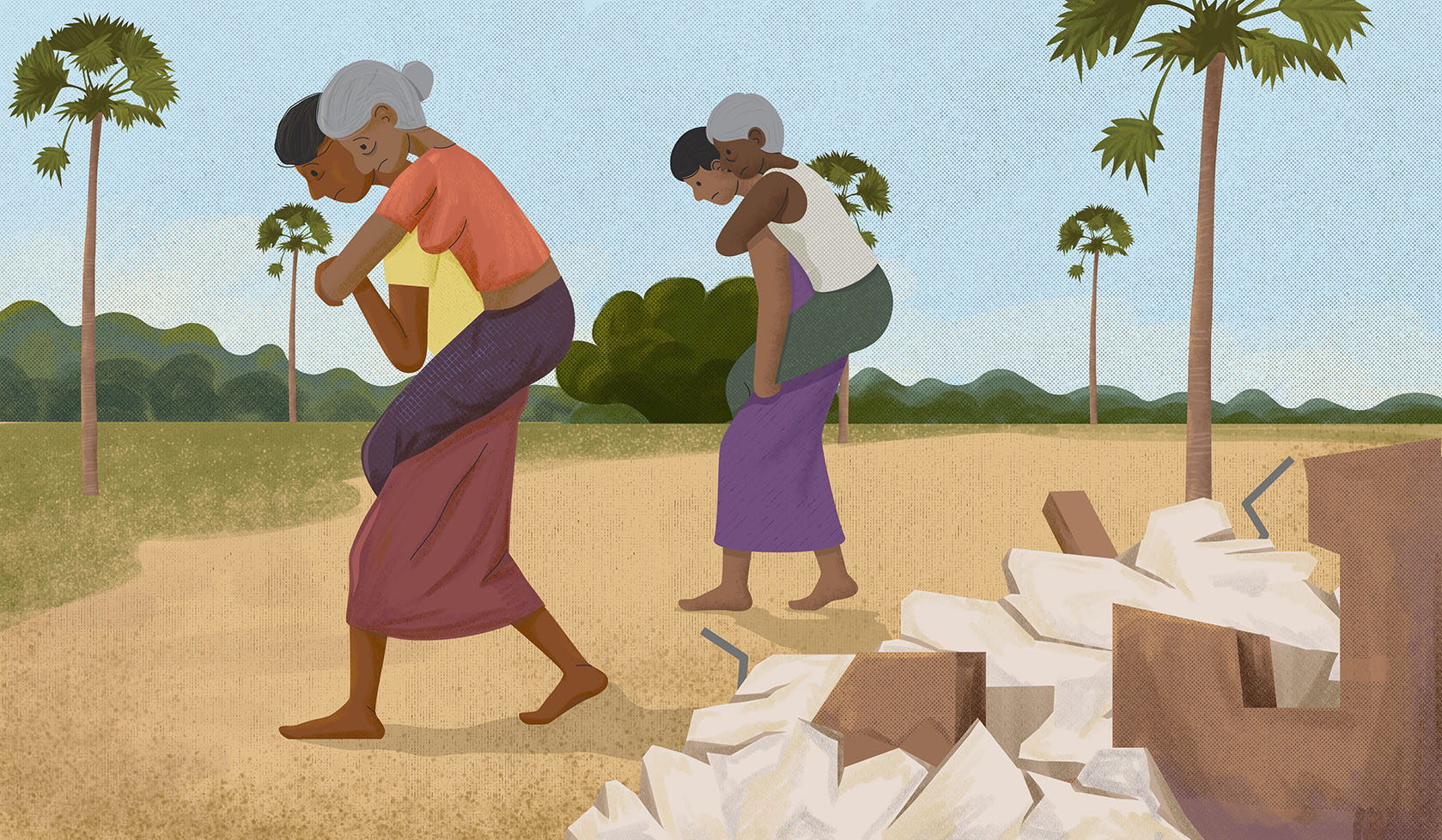
Saratha recalls: “We were hungry. We did not have anything to eat and I felt so weak, but I was determined to be with my parents and save our lives. We had a sack of paddy too, but no means of husking the paddy, so it was unusable. My brothers did not join us – they had to leave early to escape sudden recruitment by the LTTE (fighters).”
The whole family was finally reunited in Cheddikulam, in the north.
Now 53, Saratha lives with her elder sister and brother.
She produces savoury and sweet snacks like manioc chips and boondi laddu. Her first order came once she returned home to Kokilai from the refugee camp. It was for LKR 500 worth of boondi laddu for a housewarming ceremony.
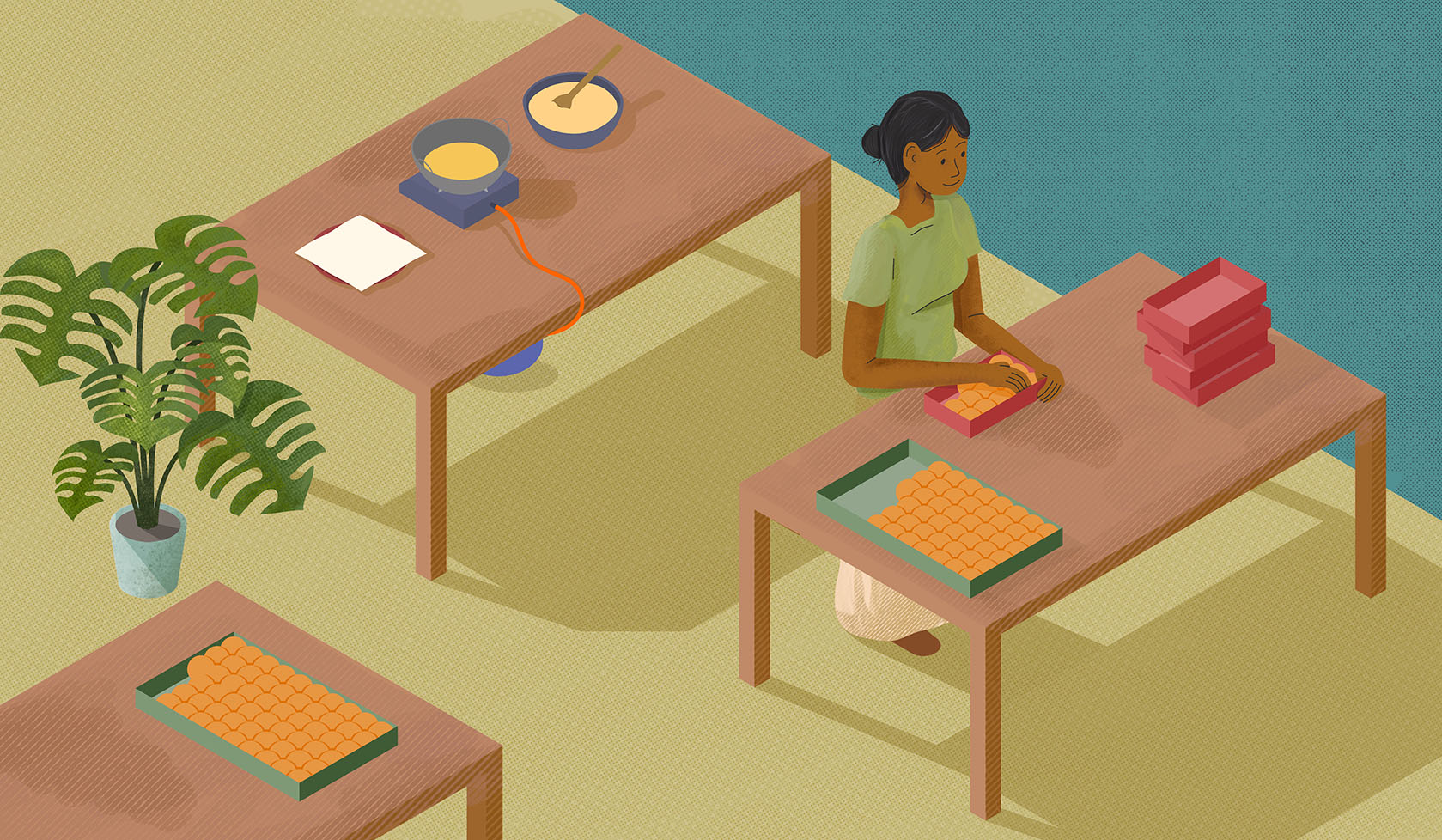
For the moment, the venture remains a family business where Saratha, her sister and one of her brothers share the work. It also provides part-time employment to a woman, a head of household, who packages the products.
Saratha intends to use the business development grant she received from the UN Women project to make her kitchen more sanitary, in line with government regulations.
She faces competition from other businesses providing the same product at low prices. And with the COVID-19 pandemic, the costs of ingredients have increased. Nonetheless, Saratha dreams that she will one day be able to build a factory and provide jobs to many women.
Ranjanita’s story: Sewing life back together
After her father left the family, Navarathnarasa Ranjanita dropped out of school to help her mother feed the household of five children. They began tailoring work in Silavaththai, in Northern Province.
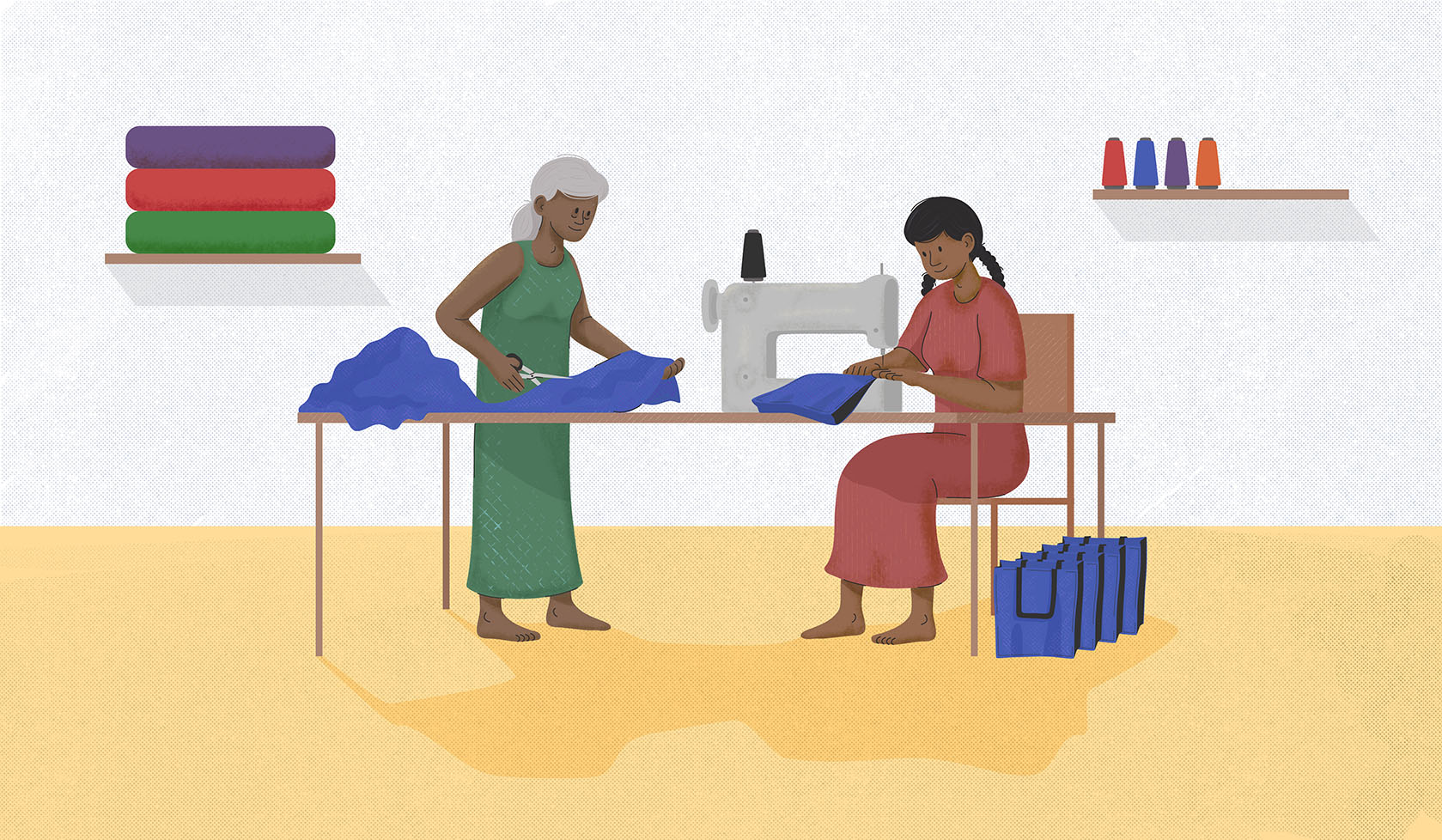
Ranjanita eventually got married and had her first child. In 2008, the family moved to a more secure place, a relative’s house in Vavuniya. Ranjanita delivered her second child there, but tragically, in 2009 her husband went missing in the conflict.
Ranjanita returned to her hometown the following year with her two children and resumed tailoring work.
“I initially worked on women’s nightdresses,“ she says. ”Later, When I realized the many competitors I had, I started sewing saree blouses and introduced new designs. Now I make party frocks and wedding attire and provide salaried jobs for two women, one of whom is a female head of household.”
However, retaining trained staff is a challenge – they leave to get married or to start their own businesses. It is a struggle for Rajanitha to bring up her children as a single parent while doing her tailoring work. Thankfully, her son is beginning to help, both at the shop and at home. She managed to register her business in 2014.
Ranjanita particularly valued the UN Women training on cost calculation and since then, has included all expenses such as electricity and labour in calculating her production costs.
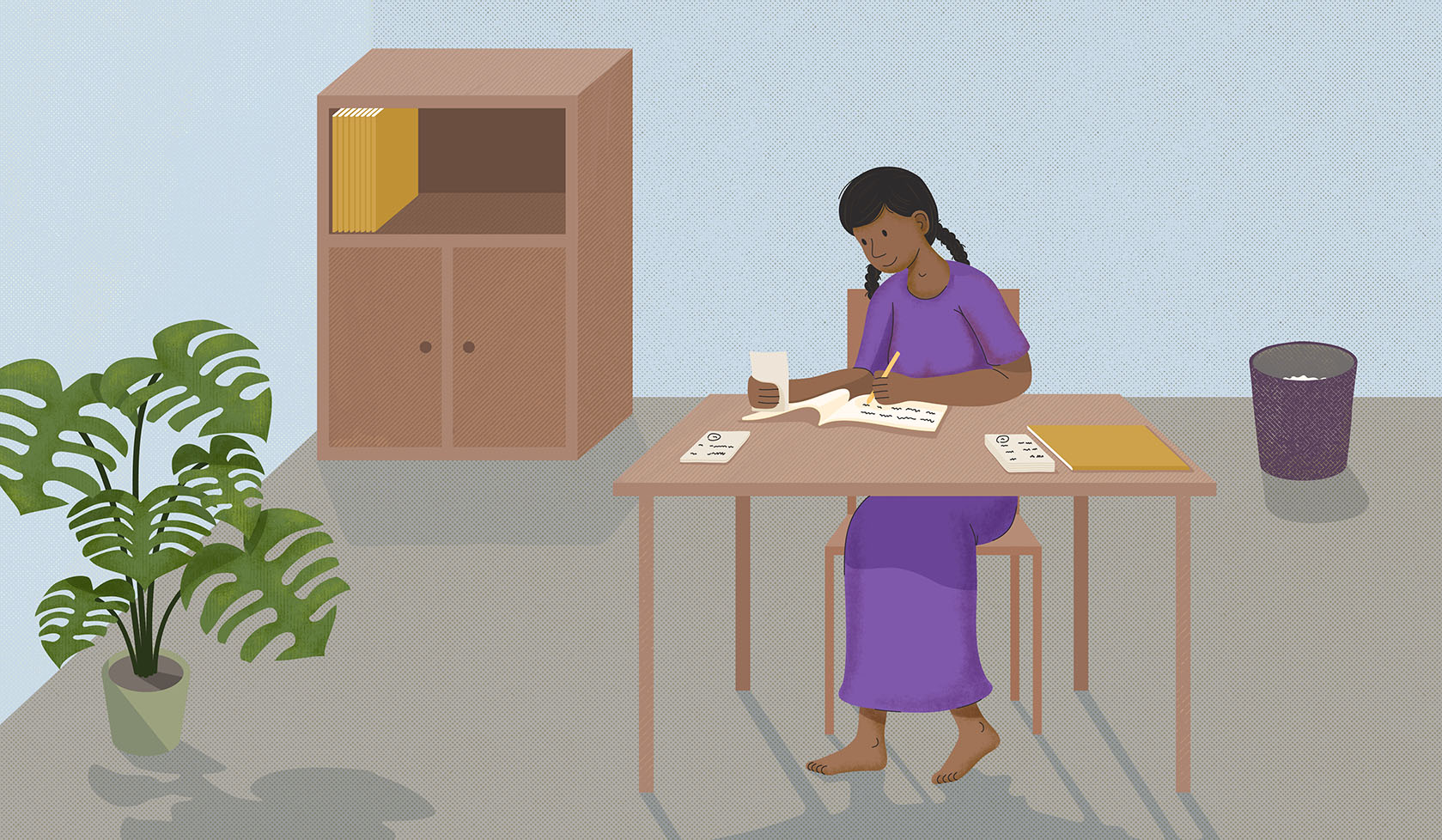
Now 45, Ranjanitha has developed a customer base in Australia and London and earns a net profit of LKR 20,000 per month.
To expand the business, she plans to get two more sewing machines to begin sewing mosquito nets. It is her dream that, over the next five years, she will be able to provide employment to two more women and establish a showroom for her readymade garments.
Anita’s story: Rebuilding a home, expanding a home business
To escape the recruitment of child soldiers by LTTE fighters. Ravikumar Anita had to drop out of school after grade 10. At only 15 years of age, she started working at a coastal seafood processing company. However, the factory was washed away in the 2004 tsunami.
During the final stage of the civil conflict, Anita’s family moved from place to place until they reached Padaviya in North Central Province. From there they moved to Vavuniya in Northern Province. During flight, her husband injured his leg, and in Vavuniya, he was separated from Anita and their child and sent to a different refugee camp. The family was finally reunited in 2010, and they returned to their hometown in Selvapuram, a village in Jaffna in Northern Province.
However, the family did not stay together long. Anita became a single parent bringing up two children. A court decided that her ex-husband should pay her LKR 10,000 per month in family support. But he failed to pay.
“I even went into the jungle to cut palmyra sticks and sold them for the family’s survival,” says Anita.
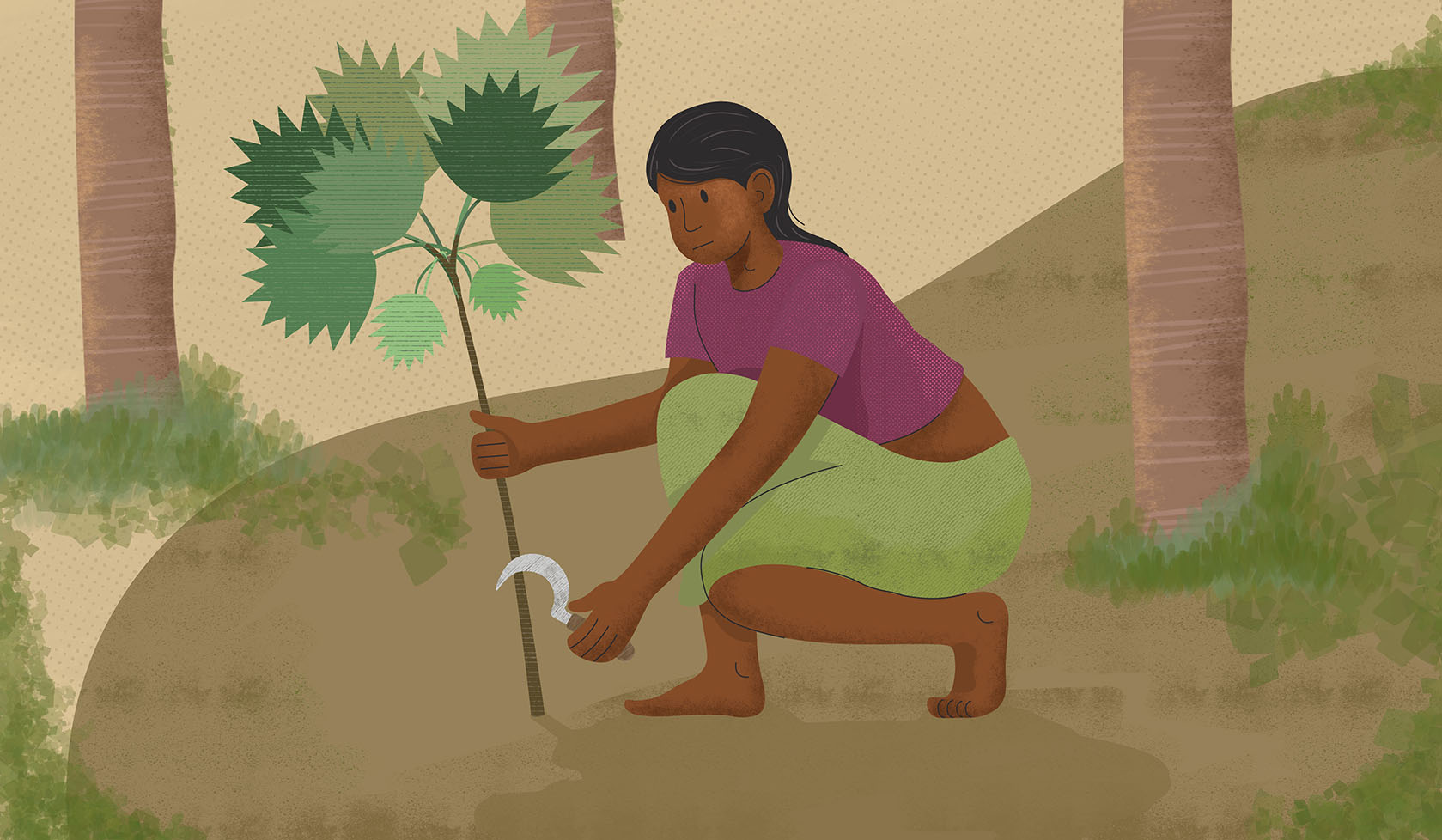
Anita started making chilli powder, rice flour and snacks at home to earn a living.
Now 35, Anita heads the village women’s savings group, which regularly pools money for saving and borrowing for livelihood or household expenses.
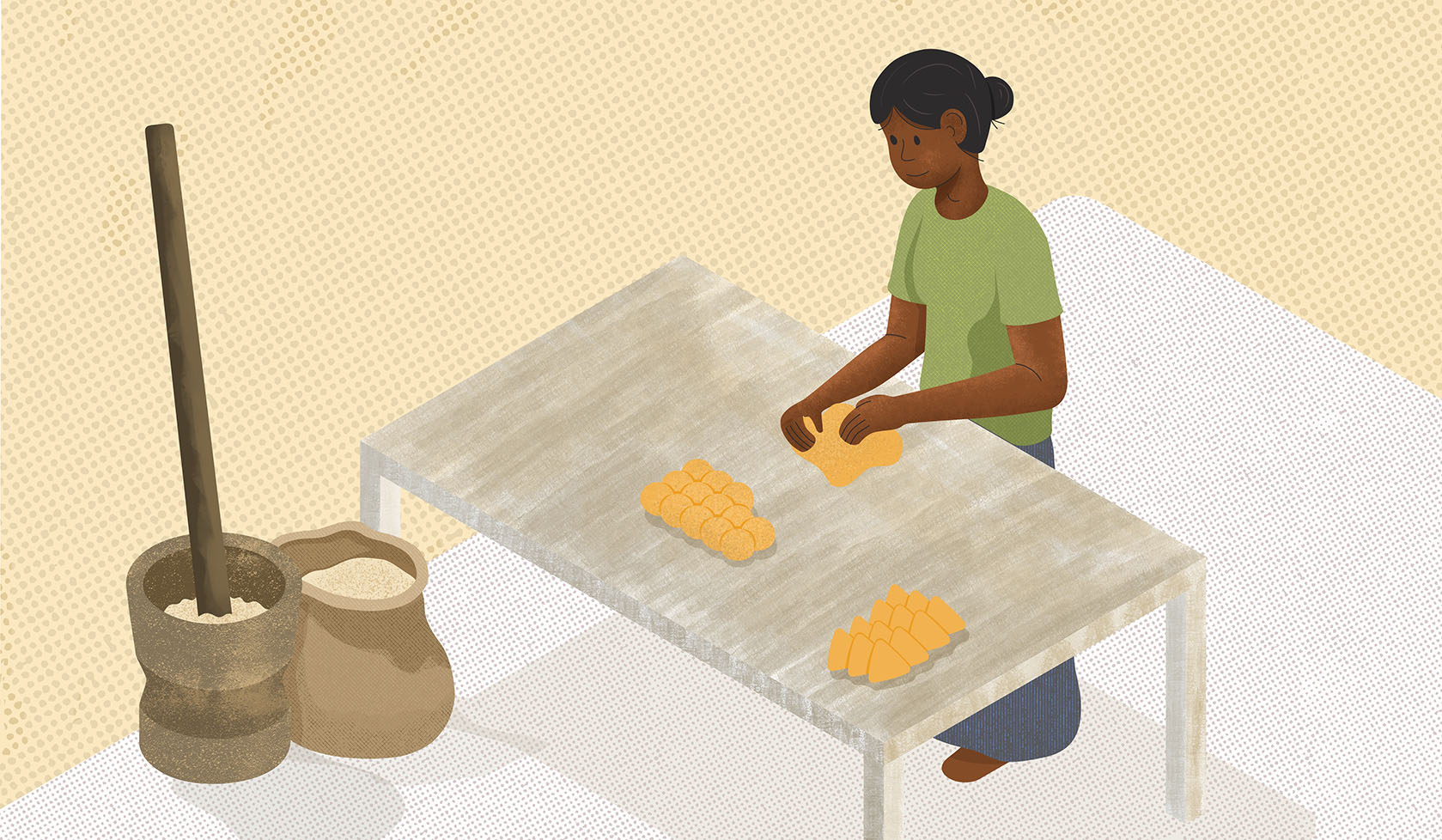
The knowledge Anita gained from the UN Women trainings helped her obtain an order from the TCT supermarket in Jaffna. She also received a business development grant from the UN Women programme.
Anita says her husband continues to interfere in her business, spreading gossip about her products and fighting with her customers. Another challenge Anita faces is transporting raw materials and products to and from her village, which is costly and time-consuming. She feels that having a heavy-duty motorbike would help.
Anita received a grant after pitching her business plan to the local Industrial Development Board and Agrarian Office. She expects that in five years, she will be a leading entrepreneur in the province and offer employment to other women.
Jesuda’s story: Finding independence after family tragedy
Thiruchalvam Jesuda had to stop schooling after grade eight when her family fled to India from the growing violence in Northern Province in 1990. Though there were educational opportunities in India, the family was too scared to venture out of the refugee camp.
In 1992, when Jesuda was 17, the family returned to Sri Lanka. To save her from the recruitment of child soldiers, Jesuda’s parents gave her in marriage to a 21-year-old man. Jesuda, her husband and four children lived on the coast of Vannankulam, a small town in the north, and fished. But the 2004 tsunami killed all four children, Jesuda’s parents and one of her sisters.
Jesuda and her husband started rebuilding their lives. They had two more children.
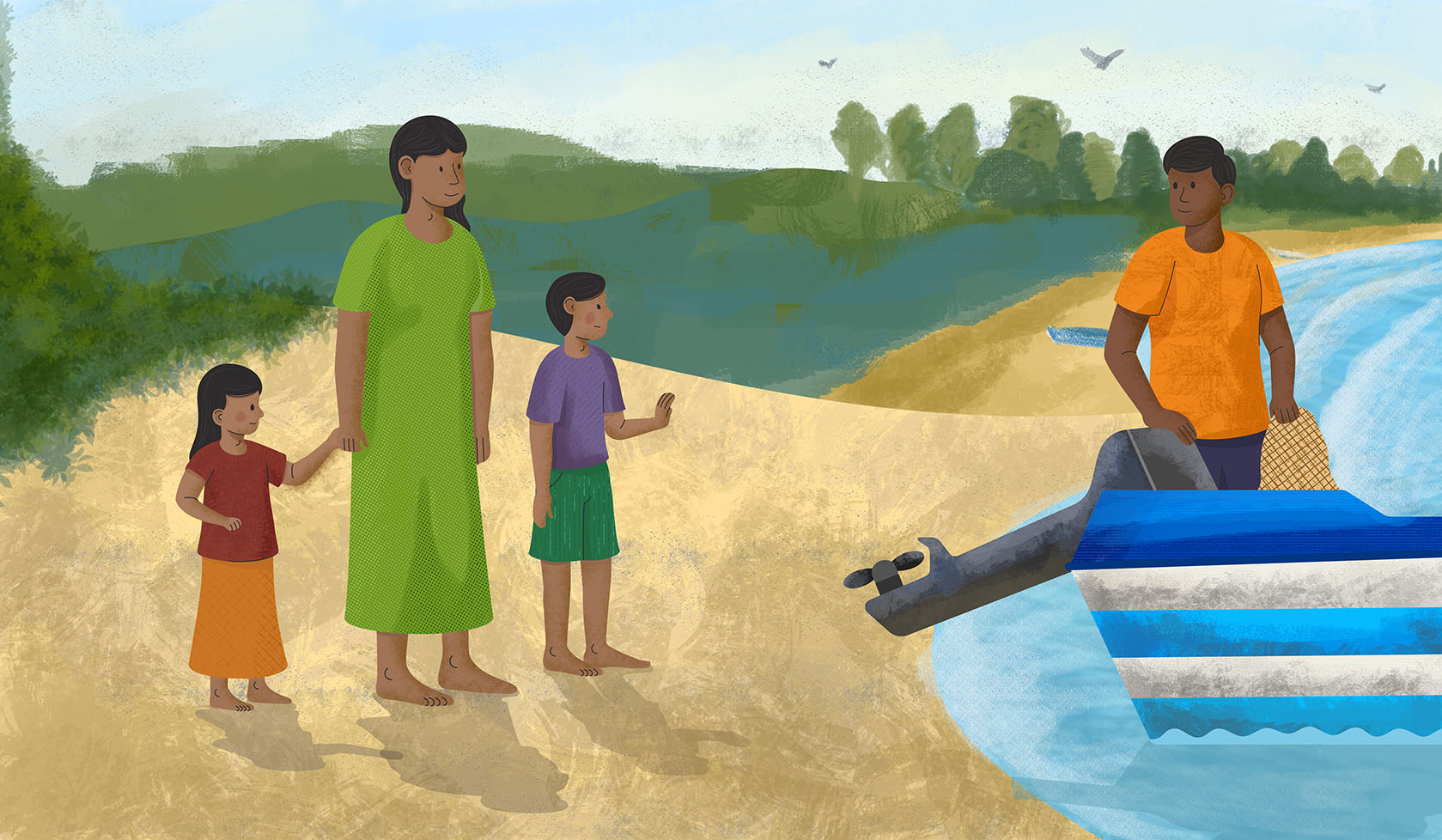
Then Jesuda’s husband died.
Jesuda is now 45 and lives with her children. She decided to continue her husband’s fishing work and hired two fishing labourers. “I am doing this job with great difficulty,” she says. “My husband built the vadi [hut where fishing workers stay]. When he died, relatives discouraged me from continuing the work. They asked me to sell the boat along with the vadi. But I accepted the challenge and continued.”
Jesuda sends food and nets to the labourers through her son, who is 15. Her sister’s son handles the selling and bookkeeping.
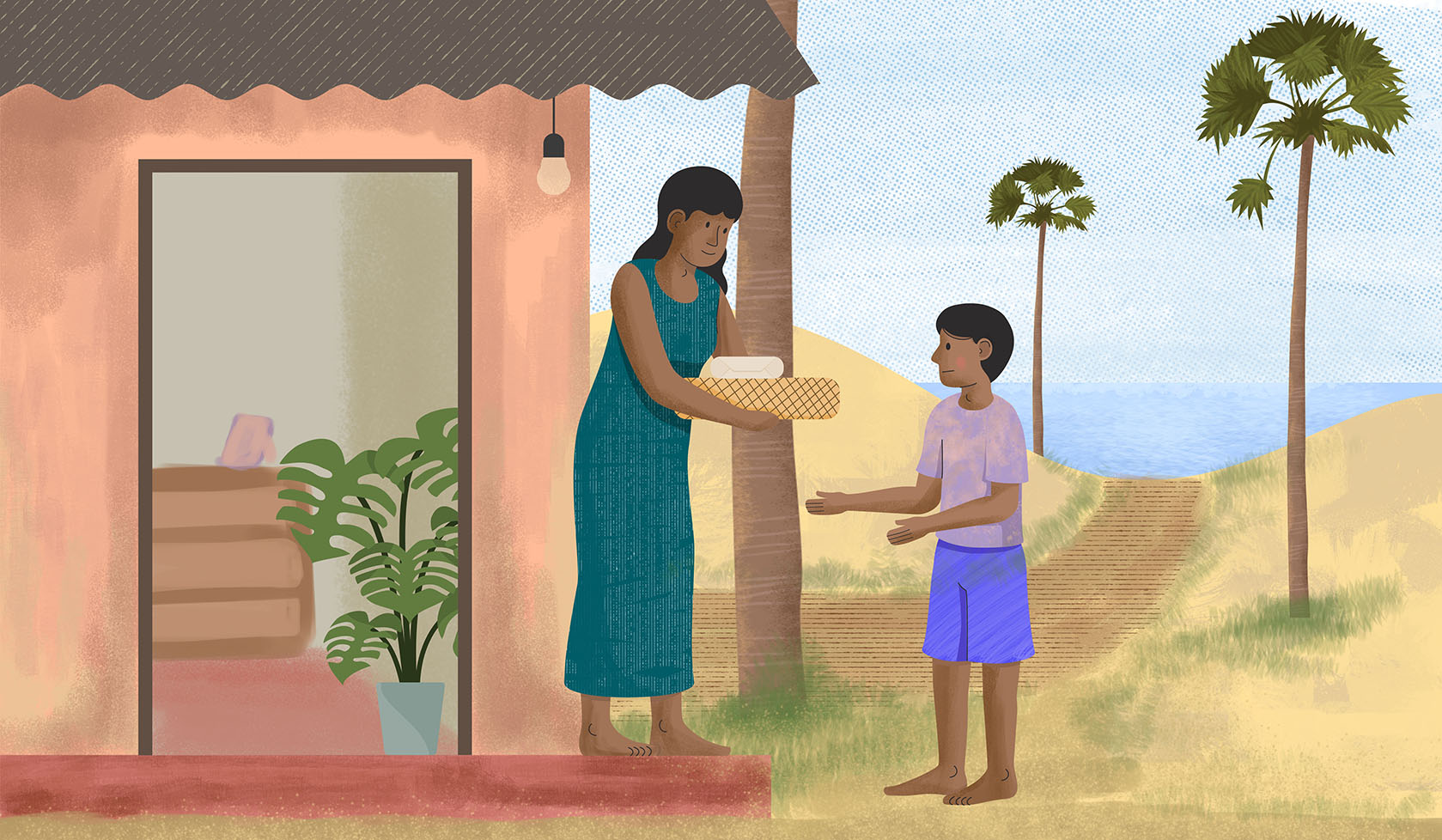
Jesuda plans to use what she learned in the UN Women training to expand her business. A grant she received from the programme will partially cover the cost of a new boat. She plans to later buy a second-hand engine and repair the old boat. She expects that this will increase her income and she will be able to hire two more people.